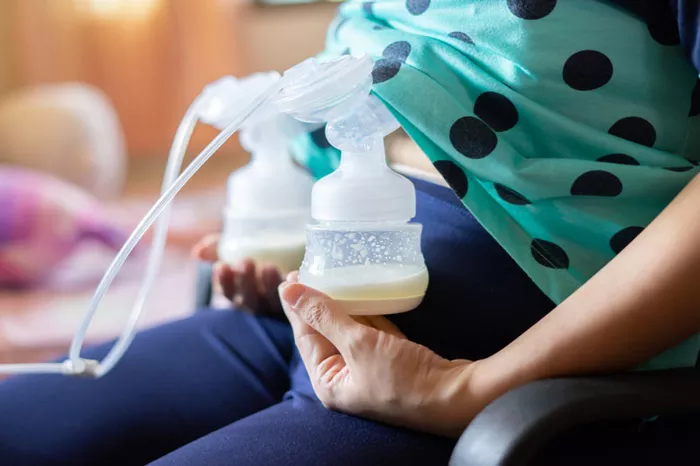Breastfeeding is a crucial aspect of infant care. Many new mothers have questions about alcohol consumption. One common question is: Can you drink while pumping breast milk? This article explores this topic in detail.
Understanding Alcohol and Breastfeeding
How Alcohol Affects Breast Milk
Alcohol passes from your bloodstream into your breast milk. The amount of alcohol in breast milk mirrors the amount in your blood. Therefore, when you consume alcohol, it appears in your breast milk within minutes.
Timing Matters
Alcohol levels in breast milk peak about 30-60 minutes after drinking. If you pump and breastfeed during this time, your baby will be exposed to alcohol.
The Impact on Your Baby
Health Risks
Alcohol can affect a baby’s development. It can impair motor skills and cognitive abilities. Long-term exposure can have more severe consequences.
Sleep Disruption
Alcohol can also disrupt your baby’s sleep patterns. It may cause shorter sleep durations and affect overall sleep quality.
Safe Practices for Drinking
Timing Your Drinks
If you choose to drink, timing is key. Plan to drink right after breastfeeding or pumping. This way, the alcohol will have time to metabolize before the next feeding.
Pump and Dump: Is It Necessary?
“Pumping and dumping” refers to expressing and discarding breast milk after drinking. While it doesn’t speed up the elimination of alcohol from your body, it can help maintain your milk supply and prevent engorgement.
Factors Affecting Alcohol Levels
Body Weight and Metabolism
Your body weight and metabolism rate influence how quickly alcohol leaves your system. Generally, a higher body weight and faster metabolism mean quicker alcohol elimination.
Type of Alcohol
Different alcoholic beverages contain varying amounts of alcohol. A standard drink (e.g., 5 oz of wine, 12 oz of beer, or 1.5 oz of distilled spirits) has about the same amount of alcohol. Consuming larger quantities increases alcohol levels in your breast milk.
SEE ALSO: 18 Benefits of Breastmilk for Skin
Alcohol Detection in Breast Milk
Test Strips
Alcohol test strips are available to check for alcohol in breast milk. These strips provide a quick way to determine if your milk is safe for your baby.
Using Technology
Various apps can help you track alcohol consumption and breastfeeding. These apps can help you plan safe breastfeeding schedules.
Recommendations from Health Organizations
American Academy of Pediatrics (AAP)
The AAP recommends limiting alcohol consumption while breastfeeding. If you do drink, they suggest waiting at least two hours per standard drink before breastfeeding.
Centers for Disease Control and Prevention (CDC)
The CDC advises similar precautions. They emphasize moderation and timing to minimize alcohol exposure to your baby.
Alternatives to Drinking
Non-Alcoholic Beverages
Consider non-alcoholic alternatives. There are many flavorful and satisfying non-alcoholic drinks available. These options allow you to enjoy social occasions without the risk.
Finding Support
If you’re struggling with alcohol consumption, seek support. Speak with a healthcare provider or join support groups. Many resources are available to help you maintain a healthy lifestyle.
Personal Stories and Experiences
Mothers’ Experiences
Many mothers share their experiences online. Reading about others’ journeys can provide comfort and insights. Each story is unique, but many mothers have successfully navigated breastfeeding and moderate alcohol consumption.
Healthcare Providers’ Advice
Consult your healthcare provider for personalized advice. They can help you create a plan that ensures your baby’s health and your well-being.
Conclusion
Drinking alcohol while pumping breast milk requires careful consideration. Timing your drinks and understanding how alcohol affects your body and your baby are crucial. Always prioritize your baby’s health and consult healthcare professionals for guidance.
Breastfeeding is a special time for bonding and nurturing your baby. Making informed choices about alcohol consumption can help you maintain a healthy breastfeeding journey. Remember, your baby’s health is paramount, and there are many ways to enjoy life responsibly while being a nurturing mother.
FAQs
Is It Okay to Give Baby Breast Milk After Drinking Alcohol?
Yes, it is generally okay to give your baby breast milk after drinking alcohol, but you need to be mindful of timing. Alcohol does pass into breast milk, and its concentration is similar to the level in your blood. The key is to ensure that enough time has passed for the alcohol to be metabolized by your body before the next breastfeeding session. The American Academy of Pediatrics (AAP) recommends waiting at least 2-3 hours per standard drink before breastfeeding to minimize alcohol exposure to your baby.
Should I Pump and Dump After 2 Drinks?
“Pumping and dumping” refers to expressing and discarding breast milk after consuming alcohol. While this practice does not speed up the elimination of alcohol from your bloodstream, it can help with milk supply and relieve engorgement. If you have consumed 2 standard drinks, it is more effective to wait for the alcohol to leave your system naturally rather than pumping and dumping. However, if you need to pump to maintain your milk supply or avoid discomfort, it’s fine to do so. The alcohol level in your milk will decrease as it does in your blood.
How Much Alcohol Passes Into Breast Milk?
The amount of alcohol that passes into breast milk is approximately the same as the level in your blood. For example, if you have a blood alcohol concentration (BAC) of 0.08%, your breast milk will have a similar concentration. Alcohol peaks in breast milk about 30-60 minutes after consumption. Generally, a standard drink contains around 14 grams of pure alcohol, and it takes about 2-3 hours for your body to metabolize one standard drink.


